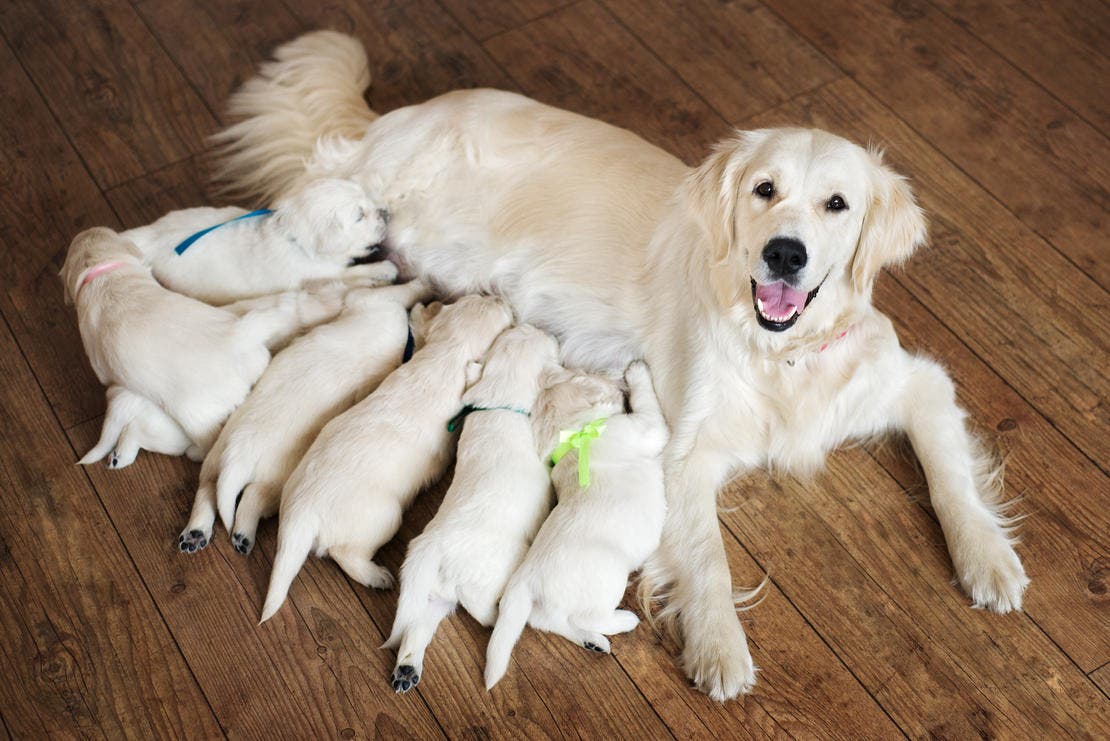Thinking about buying a puppy but not sure where to start? Look no further.
Once you’ve decided to get a dog, it’s time to work out where to get them from. If you’re not sure that adoption is for you (see our Guide to Adopting a Dog), the other popular option is to buy one from an ethical breeder.
To puppy or not to puppy?
The first thing you’ll need to sort out as a prospective dog owner is the age of dog you want. Puppies carry advantages – the biggest one being that they can be trained to eliminate bad habits – but be prepared for the added responsibilities that come with a young pup. When you bring a puppy home for the first time, you’ll have to ensure they are fed several times a day, given plenty of attention and not left alone for long periods. they will also require house-training, which can be a time-consuming (and damp) process.
Choosing your dog
The next important things to consider are the dog’s temperament and breed. Temperament is not solely defined by the breed but is also innate within a dog, and can vary from pup to pup within the same litter. Watch out for puppies in a litter that appear dominant and aggressive, perhaps barking or standing over their siblings. These dogs may well be harder to train and handle when fully grown. Similarly, nervous puppies – those that bark and then run away from new people and objects – will also be harder to train in the future, requiring more patience and gentler care. A good test is to simply pick up the puppy and check how quickly he settles down. If they continues to try to escape, they may be a dog with a nervous temperament.

Best breed for me?
Families with young children should choose a breed of dog that has a more friendly and relaxed personality, and is happy to be surrounded by people. Such breeds include Golden Retrievers, Cavalier King Charles Spaniels, Cocker Spaniels and Labrador Retrievers. Some breeds of dog can be more aloof and territorial, and these may be better suited to households without children, although all dogs are different, so this won't always be the case. These include Akitas, Chihuahuas and Chow Chows. Spend some time researching the characteristics of the breed you’re considering before committing.
Who to buy from ?
Breeders running so-called ‘puppy farms’ have a bad reputation. So it’s crucial to ensure you’re equipped with the right questions when you visit to avoid supporting unscrupulous and unlicensed breeders. Ask the breeder to see where the puppy is kept and to meet the rest of the litter. You should be able to see the puppies with mum, and ideally feeding. Also, ask if they are listing more than one breed of puppy for sale.
You should request proof that the parents are both certified by a vet as free from inheritable diseases and conditions. Also check whether the puppy has been microchipped and wormed (all puppies require this) and, if they're old enough, what vaccinations they've had, and which ones they’ll need in the future. Ask the breeder if they supply a certificate of health, which can be supplied by a local vet. If they don’t, enquire as to the reason why not. Lastly, get a signed contract in place that stipulates what will happen if you can’t keep the dog, determining your and the breeder’s responsibilities.
Don’t forget most puppies are small, but not all dogs are. Check how big the dog’s parents are before committing to the purchase, so you have a sense of how large the pup will grow to be. If they are a mixed breed, this is more unpredictable, as genes for size can come from either parent. At six months, most dogs will be around 75 percent of their full height (less for large and giant breeds), a fact that can be of some use in making predictions.
Now you’re home, what’s next? A puppy is a big responsibility, but the amount of work can still take people by surprise. Have a meeting, and make sure everyone in the household is on the same page before bringing a puppy home. If you’re out at work every day, you will need to take some time off at first and then employ someone to feed, walk and take your puppy outside. You’ll also need to embark on house-training immediately. Young pups need to be taken outside to go to the toilet at least every hour, depending on age, so be prepared to get little sleep until the process is complete. Now is also the time to think about getting your puppy insured and health checked by your vet.
Now you have your puppy, read our guide to naming it!
